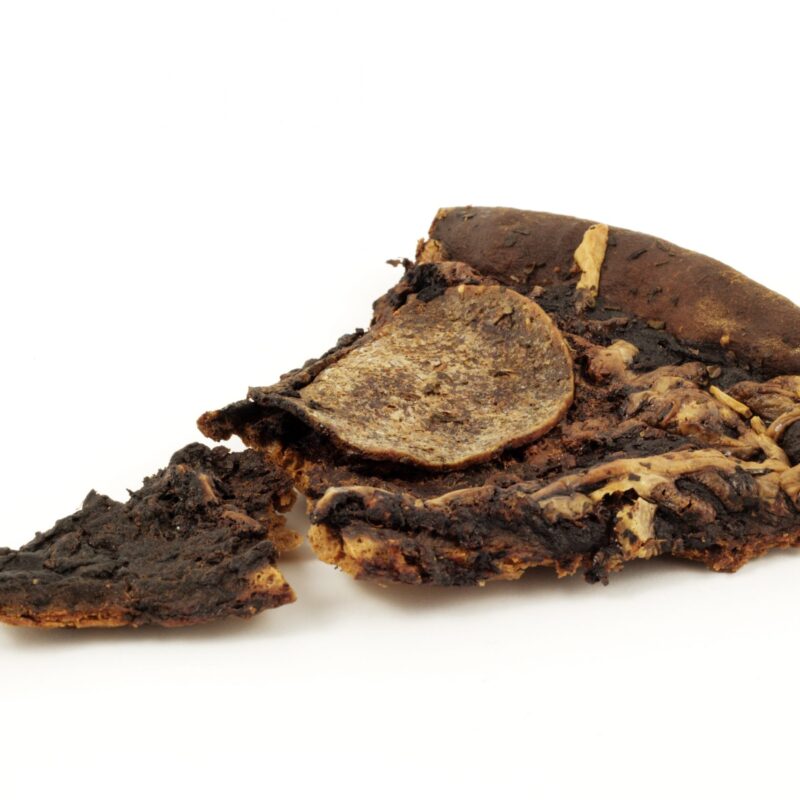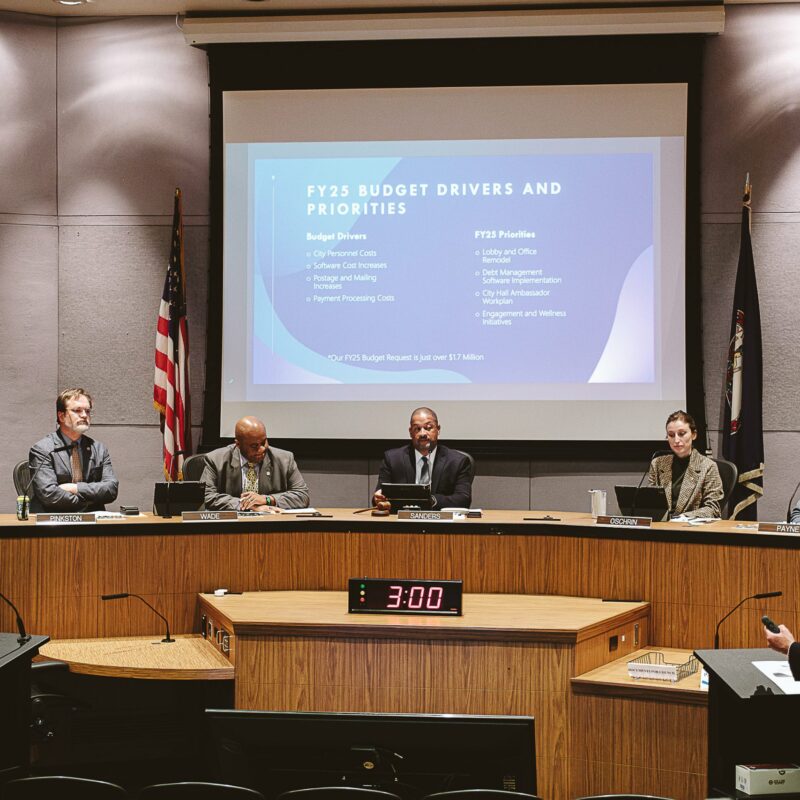stage
You know what I miss? A good old-fashioned art riot. When Alfred Jarry’s play Ubu Roi premiered in Paris in 1896, the audience shouted down the production due to its foul language and strict disregard for theatrical niceties, and it closed after a single performance.
A century should have tamed the wild response to the play, and indeed it has—a population subjected constantly to the absurd in everyday life won’t object to seeing it on the stage. What’s surprising is how shocking and provoking Ubu Roi remains. The play—about a grotesque soldier staging a coup of Poland (which didn’t exist in 1896) and robbing it for all it’s worth—refuses to let the audience simply sit back and observe the show.

Maybe they’re craaazy: Mama and Papa Ubu (played by Karie Miller and J. Hernandez, pictured) drive each other (and audiences) up the wall in the UVA Drama Department’s production of Ubu Roi.
|
Much of that can be credited to Betsy Tucker’s direction, assisted by a new translation by David Ball. The profanity of Jarry’s French is difficult to translate directly into English, since it’s frequently marred (enhanced?) by extra syllables that don’t work well in our own language; Ball has translated them by adding “–ski” to the end of many of them. While Ball’s translation ensures that the audience can enjoy the filthy language properly, Tucker surrounds the audience with the action: Actors run across platforms located behind the risers and occasionally step through the seats themselves (always with a polite, “watch your feet, please”). The audience is forced to get involved as well, occasionally being asked to shake snow over the actors or swing around noise tubes or flashlights to spooky effect.
J. Hernandez, playing Papa Ubu as a grotesque puppet and dressed in a pear-shaped fat suit with scraggly hair and yellow teeth, doesn’t give in to playing Ubu as a one-note, over-the-top character. Instead, he calms down at points and turns off the crazy-eyed sneer, which serves to make his sudden acts of violence and cursing all the more shocking (and amusing). Karie Miller, who plays his scheming wife Mama Ubu, manages the same trick with a different techinique, addressing the audience directly and rationally, then flying off the handle as soon as someone else comes on stage. The two are the heart of the play, of course, and by keeping the audience from knowing what to expect, the profanely giddy heart of the play is allowed to show through.
When not directly killing off the audience (seriously: a quarter of the audience is lead off by Papa Ubu to be “disembrained,” and, oh, how I longed for just one person to object), the weird nods to modern popular culture—a toy lightsaber for a sword, the Czar of Russia’s heralds blowing Europe’s “Final Countdown” into kazoos and a slaying taking place in “slow motion”—lets them have just enough pangs of recognition to let all the absurdity work. And if the play eventually spirals out of control in the last scene, leaving the Ubus’ fate unclear, I was enjoying myself way too much to care.





